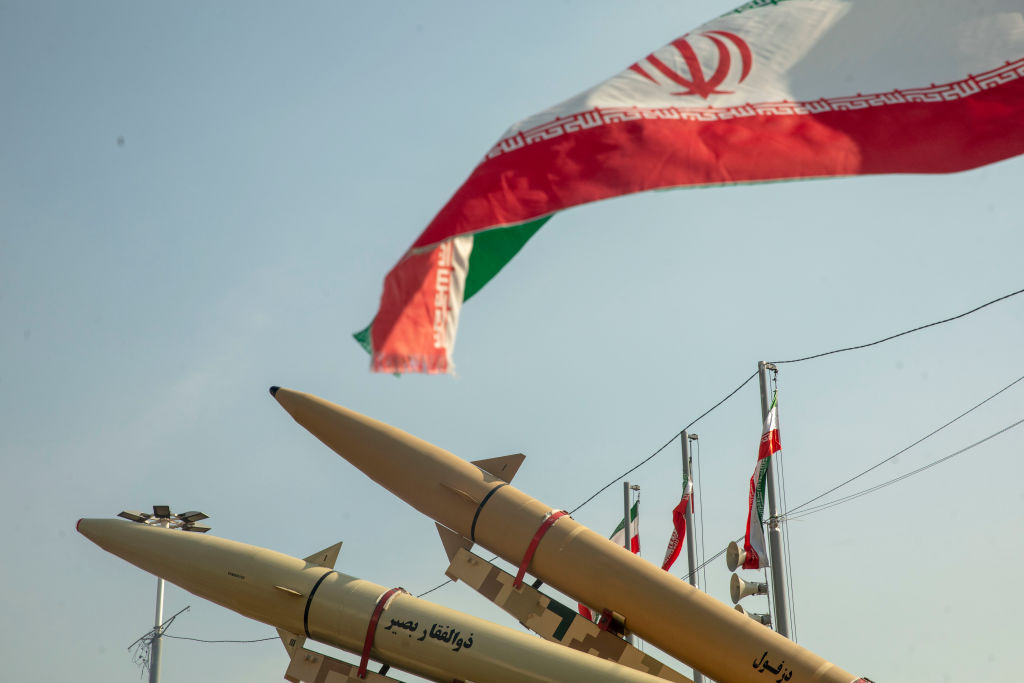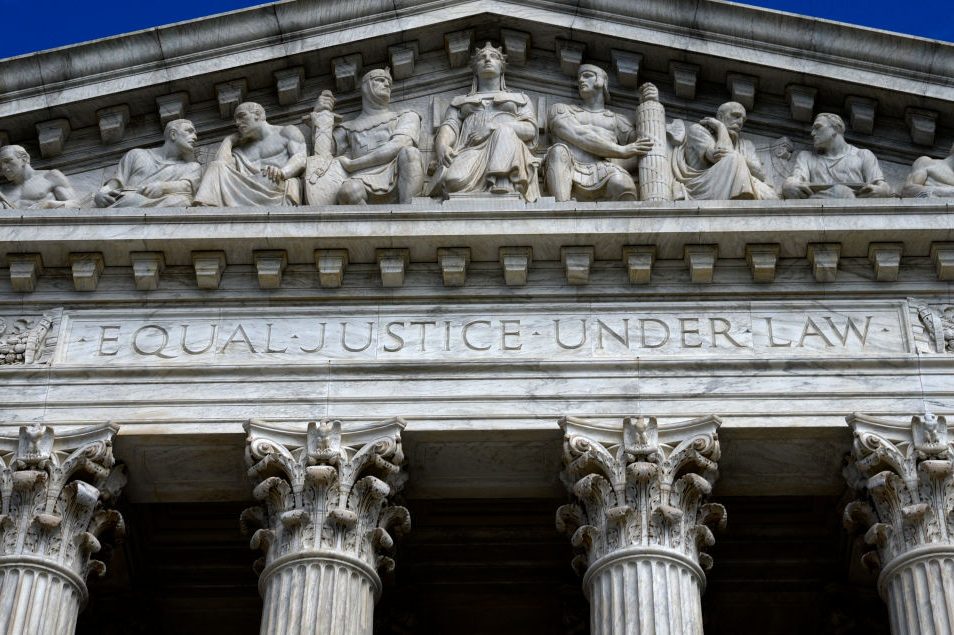China is surely America’s most dangerous threat over the medium term, but Iran is surely the most dangerous right now. The Islamic Republic would be even more dangerous if the Israelis had not decimated the Mullah’s deadly “ring of fire,” the proxy forces across the Middle East funded, armed, trained, and directed by Tehran. But removing these proxies (all except the Houthis in Yemen) does not remove Iran’s nuclear threat. That threat now faces the Trump administration and Netanyahu’s coalition in Israel, leaving only difficult choices.
To understand the current problems, we need to grasp a series of fundamental issues surrounding Iran’s nuclear program.
• What are Iran’s objectives?
• Why might nuclear deterrence, which has worked against other countries, not work against Iran?
• How has the United States responded so far?
• What was Trump’s Iran policy in his first term?
• How did Biden’s policy differ, and what were the consequences?
• What is the minimal acceptable solution for the Trump administration and Israel, as publicly stated?
• What is Iran’s negotiating strategy with the United States?
• How will the Trump administration respond if it is clear that Iran is simply delaying and will not meet America’s minimum requirements to dismantle its nuclear program?
• If Trump refuses to act militarily, will Israel make the dangerous decision to go it alone?
Iran’s nuclear objectives are clear. Ayatollah Khamenei and Islamic Revolutionary Guard Corps both want nuclear weapons and the missiles to deliver them. They have been building both for years. That building program is one of the regime’s core objectives, to which they have devoted enormous financial resources, including the construction of deep underground facilities and the refusal to declare all sites to international inspectors.
Iran’s history of cheating means no agreement with them can be trusted. It will require intensive intelligence gathering and snap inspections by a competent, neutral third party.
A key part of Iran’s negotiating position is its demand to retain nuclear enrichment facilities. Though it pretends to need enrichment for electric power, its claim is transparently false. It’s false because they have enormous quantities of fossil fuel to create electricity. They don’t need nuclear-power for that. It’s false because they have refused proposals for other countries to provide enriched fuel for power. They want to enrich themselves. That’s dangerous because the same centrifuges that can enrich uranium for nuclear reactors can also enrich the material to a much higher grade for nuclear bombs. That’s the only reason Iran wants to keep its enrichment facilities.
If Iran does retain its centrifuges and develops medium-range missiles, it poses a looming threat to its region and Europe. If Iran promises to destroy the centrifuges, then monitoring will have to be intensive and done without prior notification. That’s no easy task. The regime has too many places to hide its enrichment facilities. They have done that in the past, violating previous agreements, and cannot be trusted to disclose their facilities going forward.
The US and Israel understand the problems and have both declared – publicly and repeatedly – that they will not accept a nuclear Iran. The biggest question now is whether the Islamic regime or the Trump administration will buckle first. Will the Trump administration offer major concessions, despite its stated policy, or will it stick with its position, reject Iran’s effort to run out the clock, and help Israel take out the nuclear and missile sites militarily? For Israel, which believes Iranian nuclear weapons could lead to a second Holocaust, the hardest question is whether to strike Iran if the US accepts a bad deal or refuses to help Israel attack.
An Israeli attack without US permission or assistance would put enormous strain on the bilateral relationship. It would also be very difficult for Israel militarily since its air force lacks the mammoth planes needed to deliver the heavy bunker-buster bombs. Only the US has them.
If Iran were attacked, it would likely strike back with missiles against US bases in the region, America’s regional allies, and, of course, Israel itself. But its most lethal weapon would be to activate terrorist sleeper cells across the Middle East, Europe, and America. Faced with those attacks, the US and Israel would likely respond with a more intensive bombing campaign, aimed at taking out the Islamic regime. That means the first kinetic attack on Iran would likely bring serious escalation with unpredictable consequences.
Besides the lethal dangers that escalation would bring, it would blow a hole below the waterline in Donald Trump’s political promise to end America’s constant wars and avoid starting any new ones. He knows that and will be extremely reluctant to cross that line and enter unknown and dangerous territory, militarily and politically.
Why not wait for the harsh sanctions Trump has re-imposed to do their work? That could well be the US choice since it poses the least short-term risk. But it faces two major problems, thanks to Iran’s secrecy and the legacy of Biden’s failed policy. The two problems are intertwined.
When Biden took office, Iran was essentially broke. Trump had implemented sanctions that starved the Islamic Republic of financial resources. It simply lacked the money to fund its terrorist proxies across the region, its IRGC forces at home, its aggressive nuclear program, and its supporters inside the country.
Joe Biden (or whoever controlled policy in that administration) stopped enforcing the sanctions, leaving them in place in name only, but not in practice. The resulting surge of cash allowed Iran to replenish its “ring of fire” around Israel, accelerate its nuclear program, and buy off local opponents of the regime.
Was Biden’s policy defensible, even though it failed? Not after the failure became apparent. Its supporters could defend it for the first year or two, hoping that America’s open hand and unilateral concessions would lead Iran to respond in kind. What is indefensible is to continue that policy after America’s tacit concessions were not reciprocated. Yet that’s exactly what the Biden administration did. It stuck with its failure, despite a cascade of catastrophes across the Middle East – in Lebanon, Syria, Yemen, and Gaza – all of which could be traced directly to Tehran.
When Trump returned to the White House, he immediately reversed Biden’s failed Iran policies. Besides hitting the regime’s foreign-exchange earnings with primary sanctions and secondary ones against anyone who buys Iranian oil, as he did during his first term, Trump has hit the regime’s earnings with lower gas prices. Oil is Iran’s only source of foreign revenue, and Trump’s “drill, baby, drill” policies have sunk the price of petroleum.
If starving the regime financially is working, why not wait for it to produce results on the nuclear program? Because the sanctions might not work quickly enough. Iran might be able to produce a small cluster of nuclear weapons before their cash runs out.
Given the priority the regime has put on those weapons, they will use their last dollars to fund the program. Their effort to slow-walk bilateral negotiations with the US strongly suggests they are trying to do just that and believe time is on their side. They figure they can outlast the US at the negotiating table. Their goal is to delay, delay, delay until they have actually built the weapons. The question is whether they are right.
Biden’s failed appeasement policy put the US and Israel in this dangerous spot, forcing the US to decide when to end the prolonged talks. Before deciding whether to bomb, both the US and Israel will try to hack Iran’s nuclear program and eliminate key scientists and IRGC leaders, if they can. In fact, they will do that even as talks continue. But even if these tactics are successful, they will only delay Iran’s nuclear program, as they have in the past. They won’t stop it. As long as the regime stays in power, as long as it refuses a deal to eliminate all enrichment and permit snap inspections, the only way to wipe out the program is by bombing, with all the attendant risks.
Why not let Iran get nuclear weapons and assume we can deter their use, as we have with the Soviet Union, post-Soviet Russia, China, North Korea, India, and Pakistan? That might work, but it is problematic for two reasons that apply specifically to Iran. One is the logic of its theocratic regime, especially if it were collapsing. A regime grounded in violent, Jihadist ideology and knowing it would not survive might use its dying moment to wipe out the Infidels, especially the Jews and the Jewish State. Put simply, the regime itself could become the largest suicide bomber in history.
Second, if Iran does become a nuclear power, it could spur regional proliferation. A nuclear Iran would pose a lethal threat to its mortal enemy, Saudi Arabia. The Saudis would have powerful incentives to build their own weapons, rather than rely entirely on US deterrence. Turkey might go down the same path.
None of this predicts what the US and Israel will do next. What it does tell us, though, is that Iran is trying to run out the clock as it continues to enrich and build nuclear weapons. It tells us that nuclear deterrence, which has worked with other countries, might not work against a collapsing Islamic regime. And it tells us that Israel and the United States will face very painful choices in the months ahead, with no assurance that the two allies will reach the same decision.
It didn’t need to be this way. A failed appeasement policy put us here and left us with only the most difficult and dangerous choices.


























Leave a Reply